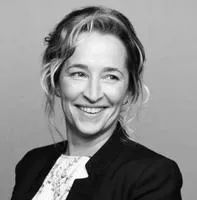Studying an Executive MBA without a Bachelor Degree, is it possible?
Despite the academic rigor of business school, you don’t need an undergraduate degree to study an Executive MBA. Here's why.

There's a demand for business school applicants without undergraduate degrees, too | ©f11photo, iStock
You might think that, without an undergraduate degree, your chances of successfully applying to pursue an Executive MBA are slim. You’d be wrong.
Marjorie Diebolt, head of recruitment for executive programs at emlyon Business School, explains that there are usually five-to-10 students out of 80-to-100 in the Executive MBA program at the school without an undergraduate degree. “It’s quite common,” she says.
Candidates who apply tend to have strong real-time work experience behind them, and are looking to underline that with business theory. Students without an undergraduate degree integrate well into the program, Marjorie says—after admission it’s often hard to separate them from the degree-holding students.
Qualifications are always useful and, in the world of business, an Executive MBA consolidates business knowledge, expands your network, and broadens your perspective beyond your current industry.
If you can ultimately prove your skillset––whether through the running of your own business or working in industry for a number of years––then you are a viable candidate for an Executive MBA program, irrespective of educational background.

Applying to an EMBA without an undergraduate degree
The process for applying to business school is the same, regardless of your academic background. Either way, you need to provide details of your career path, your future objectives, recommendation letter, and an English test.
“For non-undergraduate degree candidates, we pay special attention to their writing ability and synthesis,” Marjorie (pictured) adds. “After that, it’s a standard face-to-face interview with a professor and alumni, who will submit their final recommendations about the admission.”
The final decision is based on the culmination of these things and a candidate’s performance in the face-to-face interview. In reality, educational experience isn’t the priority.
“If you’re thinking about applying to business school, and are worried about the fact you don’t have an undergraduate degree, just go for it,” says Danny Jansen, an Executive MBA graduate from Nyenrode Business University.
“I wish I’d had the guts to do it earlier. It’s really given me a boost and given me the confidence to take my career to the next level.”

When is the right time for an EMBA?
Danny enrolled on the Executive MBA at Nyenrode Business University and was awarded the coveted title of Student of the Year for his class back in 2012. He came to the program with a few years of work experience under his belt and no undergraduate degree to speak of.
Before the EMBA, Danny worked in the container industry, rapidly rising through the ranks. But he reached a level of seniority where he found he couldn’t progress further. His lack of qualifications was preventing him from successfully securing interviews for higher up positions.
“A lot of companies look at your resume and make immediate judgements based on your education,” he says. “I found myself sitting at the table with my peers and, even if I knew I had the best knowledge on a topic, I felt insecure of my place there. I felt stuck.”
In order to remedy that, Danny (pictured) decided to apply for EMBA programs, and has found his career has benefitted from the decision.
“Now I sit at that table with confidence. I know that, when I speak, people are listening and trust what I have to say because of my time at Nyenrode as well as my prior experience.”
Danny is now self-employed and wears many hats while working as a project manager for the municipality of Leiden and also as a privacy consultant for the municipality of Rotterdam. He says he has ambitions to one day run a business that promotes sport amongst children; Danny hopes what he learned on the Executive MBA will help him formulate his business plan and launch it.
EMBAs attract students from diverse backgrounds
Business schools want candidates from diverse backgrounds to apply––which means there is a desire for applicants without undergraduate degrees.
As Dan Bauer, owner of the admissions consultancy MBA Exchange, tells The Financial Times, having rich cultural, socioeconomic, and experiential diversity ensures that the discussions happening in the classroom are as representative of the real working environment as possible.
Dan goes on to add that he has personally seen top schools like Wharton, Columbia Business School, and London Business School all accept students without undergraduate degrees.
“In my experience, students without undergraduate degrees are hard workers with a hands-on approach when working on projects with their peers,” says Marjorie of Emlyon.
More value is being derived from relevant work experience than three years studying an undergraduate degree. That’s good news for prospective Executive MBA candidates who entered the world of work rather than college.
Business schools will continue to try and offer a classroom as representative of the world as possible. As a candidate without an undergraduate degree, you’ll bring something fresh, different, and much needed to the executive classroom.

